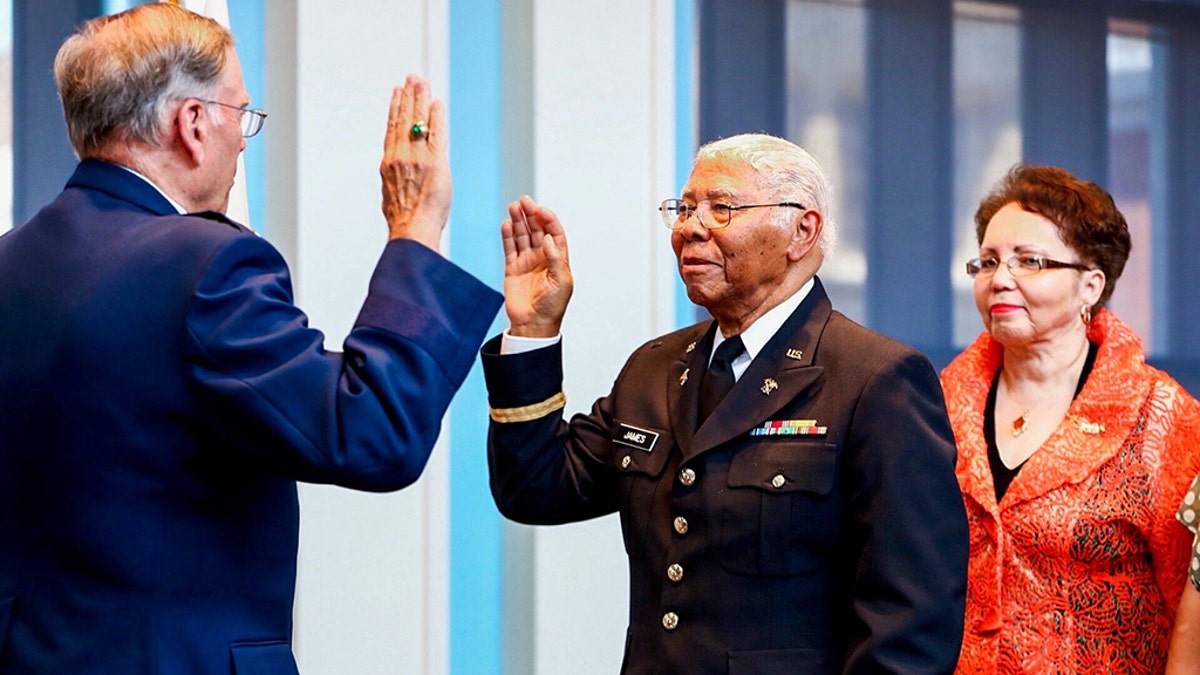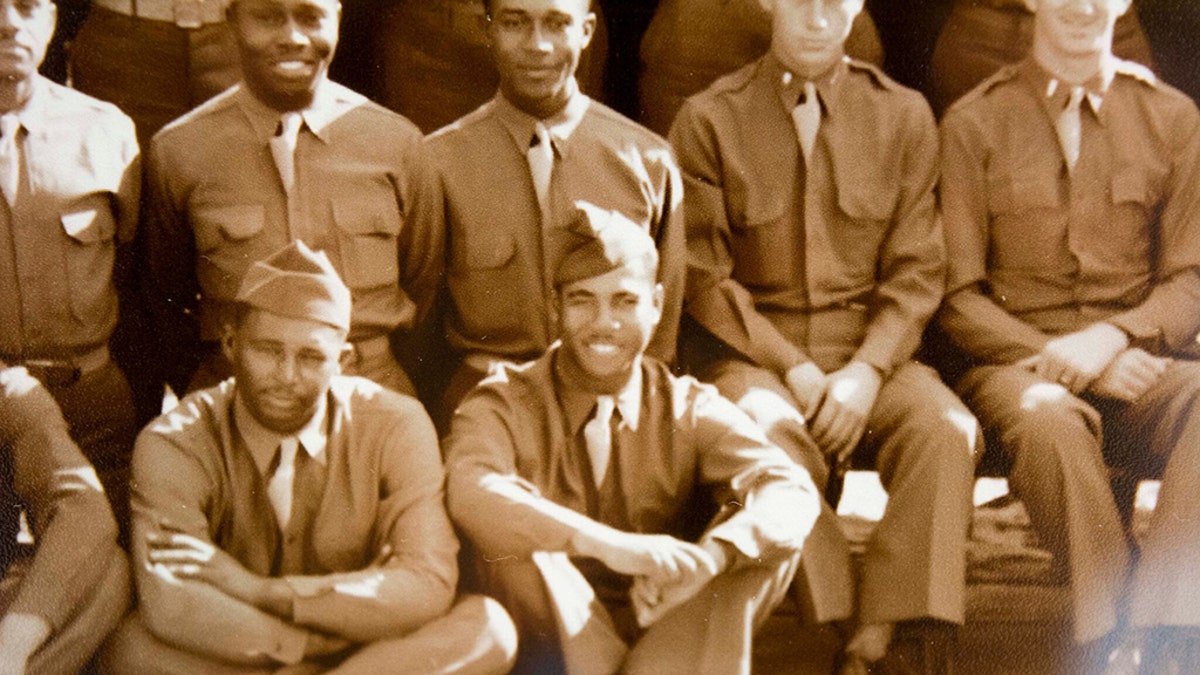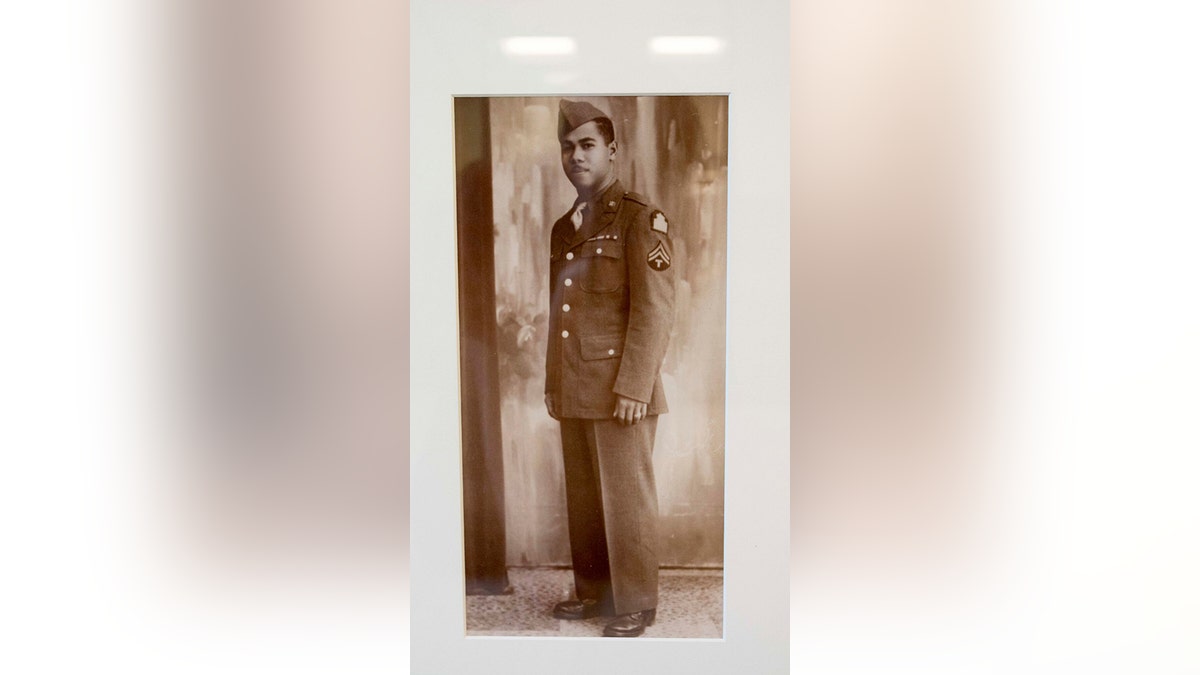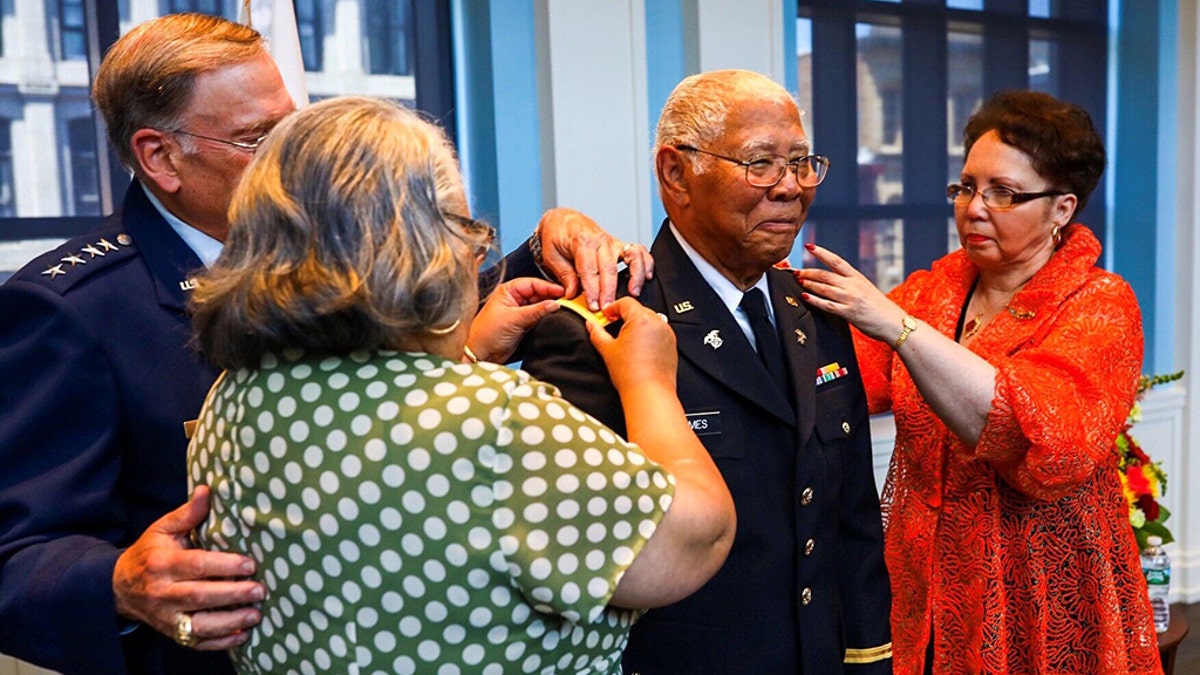
World War II veteran John Edward James, Jr., was commissioned as an officer of the U.S. Army on Friday — 75 years after he was denied status due to the color of his skin. (Museum of the American Revolution)
A black World War II veteran who was denied status as a U.S. Army officer because of his race finally received his commission 75 years later.
John Edward James, Jr., 98, was commissioned as a second lieutenant on Friday during a ceremony at the Museum of the American Revolution in Philadelphia, Pennsylvania.

John Edward James, Jr., pictured smiling in his graduation photo. (Museum of the American Revolution)
From Johnstown, James was drafted into the military in 1941. He spent his time serving in the war as a corporal, working as a typist with a quartermaster battalion supplying front-line combat units in North Africa and Italy for three years. After the war, he married and worked for the U.S. Postal service until his retirement in 1976.
'GOOD CEMETERIAN' HONORS VETERANS BY RESTORING GRAVESTONES
He attended officer candidate school at Fort Benning in Georgia, but the day before he was supposed to be commissioned, he was told he wouldn’t be made an officer and was being transferred.
It was common during World War II for black soldiers to be denied commissions if they were to be assigned to a predominantly white unit. At the time, it was against Army regulations for white soldiers to be subordinate to blacks.

During his time in the the Army, John Edward James, Jr. served as a corporal, working as a typist with a quartermaster battalion supplying front-line combat units in North Africa and Italy for three years. (Museum of the American Revolution)
When his daughter, Marion Lane, found a photo in 2001 of James’ graduation, she said he told her to “throw it away because it meant nothing.”
But Lane, who said “Tenacity is my middle name,” didn’t give up on her father’s status and worked to get him officially commissioned.
While her application for James was denied multiple times by the Army Review Board for insufficient evidence – some records were destroyed in a fire – it was finally secured with the help of Democratic Sen. Bob Casey, of Pennsylvania.

John Edward James, Jr., who was drafted into the Army in 1941, attended officer candidate school in Georgia but the day before he was set to be commissioned, he was told he wouldn't be made an officer and was being transferred. (Museum of the American Revolution)
"Although not awarded the commission owed to him, he bravely rose to face one of our most challenging times in history," Casey said. "He was denied recognition of his service to his country simply because of his race, because of the color of his skin."
According to the museum, James received a number of awards for his service, including a Good Conduct Medal, American Defense Service Medal, American Campaign Medal, World War II Victory Medal and a European African Middle Eastern Campaign Medal.
The Associated Press contributed to this report.









































